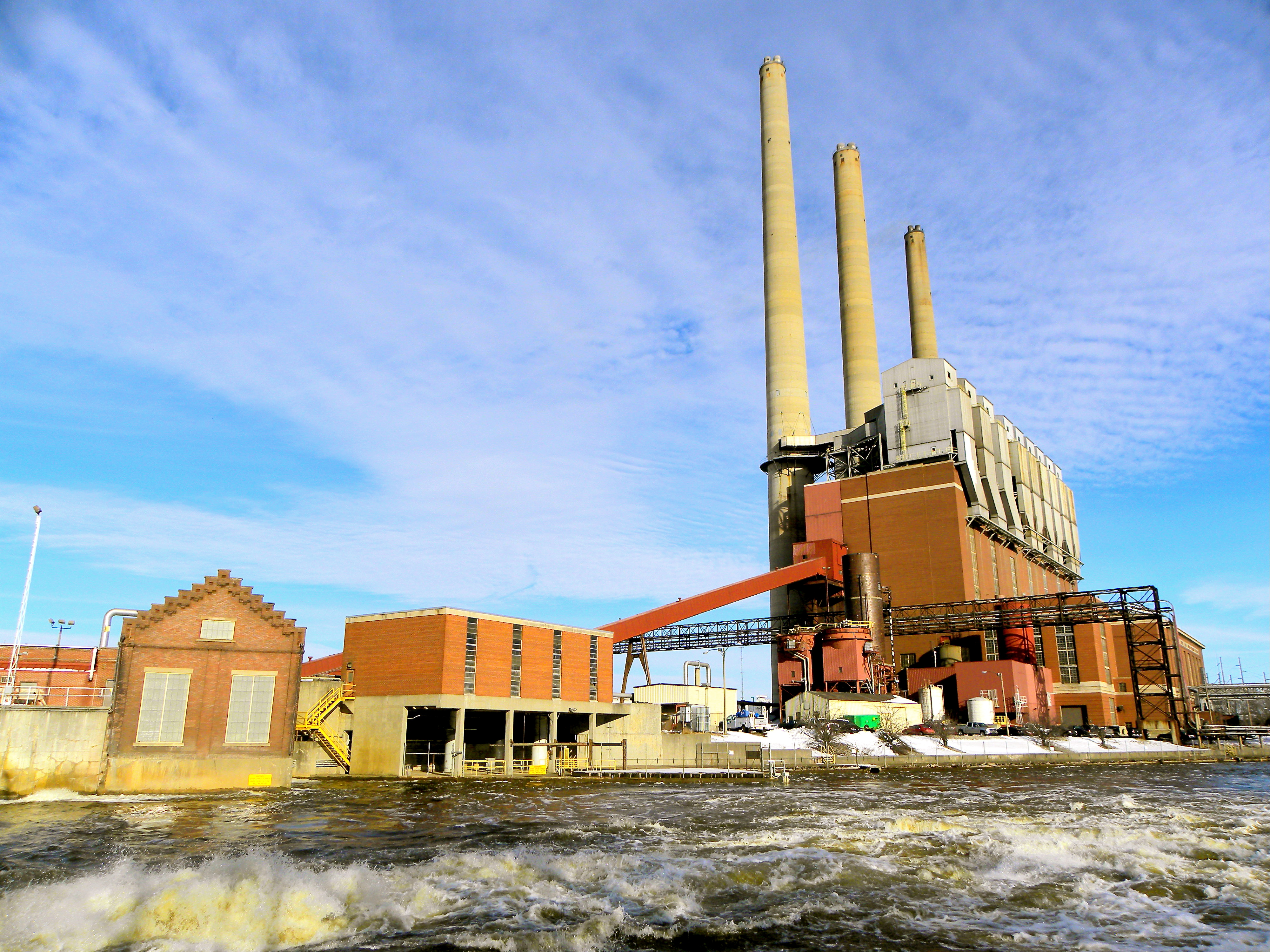
Otto E. Eckert Station, a coal-fired power plant in Lansing, Michigan. Image: Jennifer Kalish.
By Shruti Saripalli
Michigan can save money in the move towards clean energy by choosing a path that limits the amount of carbon dioxide produced by power plants, says a new electric industry report.
The Electric Power Research Institute (EPRI), a non-lobbying research institute, reports that this is possible due to the expected closures of coal-based power plants in the next 15 years.
By the year 2030, Michigan’s electric utilities have to cut emissions by almost 32 percent of their 2005 levels under the Environmental Protection Agency’s Clean Power Plan.
The institute’s report explores two options to make that happen.
The cheapest one is by limiting the number of tons of carbon dioxide produced statewide each year, an option called the mass-based pathway, said David Young, the project manager at the institute.
An alternative is capping the rate of emissions of carbon dioxide of individual power plants, an option called the rate-based pathway, he said.
The report concluded that a mass-based pathway is the cheapest.
Additionally, that option would cut Michigan’s carbon dioxide emissions more than it’s required to. That surplus benefit could be sold to other states to help them comply with the federal law, according to the report.
The path that Michigan chooses will influence what kind of power plants the state should invest in.
A rate-based pathway requires new wind capacity and additional investments in existing power plants to meet the emission rate targets, the report said.
The mass-based pathway could use natural gas power plants.
As one of the five utilities that funded the report, officials at Michigan-based DTE Energy said the study indicates the state can meet the emission reduction requirements by 2030 through announced and expected coal plant closures.
Regardless of the Clean Power Plan, officials said that the company will diversify its energy sources and have set a goal of 25 percent reduction in their carbon emissions by 2018.
“We have announced the closure of three power plants by 2023 in River Rouge, Trenton Channel and St. Clair and plan to replace them by increasing our wind, solar and natural gas energy generation,” said Brian Corbett, the communications manager at DTE Energy.
Another Michigan utility that funded the report, Consumers Energy, said that the state has a good path forward for compliance with the federal requirements.
“Consumers Energy is well-positioned to support a Michigan compliance plan with the Clean Power Plan due to the recent retirement of seven coal-fired power plants, or one-third of our coal fleet,” said Brian Wheeler, the senior public information director at Consumers Energy.
“We are replacing them with a natural gas-fueled plant in Jackson that we bought for about one-quarter the cost of building a new plant, plus short-term contracts to purchase power,” he said. “Over time, we will be looking at options that include building new plants.”
A separate study was done for the state’s energy regulator, the Public Service Commission, and the Michigan Agency for Energy.
The state’s report also concluded that a mass-based pathway is cheaper than the rate-based pathway for Clean Power Plan compliance in Michigan.
Judy Palnau, media and public information specialist at the Agency for Energy, said the agency is unaware of the EPRI report.
And those who are aware of the study, don’t necessarily agree completely with it.
“I agree with the general approach of the EPRI report, that many power plants will be closed in the next 15 years, due to which the report is weighted towards natural gas- generated power plants,” said James Clift, the policy director at the Michigan Environmental Council, a coalition of environment groups. “But the report underestimated the amount of renewable energy in terms of energy efficiency”
A September poll by the Center for American Progress Action Fund found that 56 percent of Michigan residents surveyed said they support the federal Clean Power Plan.

The EPA’s homepage Image: Shruti Saripalli
Meanwhile, following a U.S. Supreme Court stay in February, Michigan has suspended all efforts to comply with the Clean Power Plan, said the Agency for Energy.
The report by the research institute said that the impact of the court stay on the Clean Power Plan requirements in Michigan was uncertain at the time of its preparation.
EPRI is doing similar studies for Wisconsin, Indiana and Kansas.
